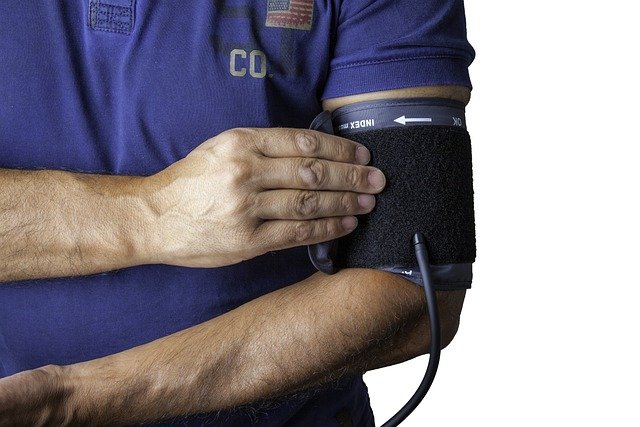Early Heart Warning: Physical Changes Worth Paying Attention To
Could your body be trying to warn you about an upcoming heart issue? Many people experience subtle physical changes days or even weeks before a heart attack—but often don’t recognize them. From unusual fatigue to chest discomfort, these early warning signs can help you respond before it’s too late. Understanding the signals may make all the difference in protecting your heart health.

What Are the Most Common Early Warning Signs of Heart Problems?
Heart problems often manifest through subtle physical changes before becoming severe. Some of the most common early warning signs include:
-
Chest discomfort or pain (angina): This can feel like pressure, squeezing, fullness, or pain in the chest area. It may come and go or persist for several minutes.
-
Shortness of breath: Feeling winded during activities that were previously easy, or experiencing breathlessness while resting, could indicate heart issues.
-
Irregular heartbeat or palpitations: Noticeable changes in your heart’s rhythm, such as skipping beats or rapid fluttering, might signal an underlying problem.
-
Fatigue and weakness: Unexplained tiredness or weakness, especially during activities you used to handle easily, could be a sign of heart trouble.
-
Swelling in the legs, ankles, or feet: This could indicate that your heart isn’t pumping blood effectively, leading to fluid buildup in your extremities.
What Physical Changes Should Never Be Ignored?
While some symptoms might seem minor, certain physical changes warrant immediate attention:
-
Sudden, severe chest pain: Especially if accompanied by shortness of breath, nausea, or lightheadedness, this could signal a heart attack.
-
Unexplained fainting or near-fainting: This might indicate an irregular heartbeat or other serious heart conditions.
-
Sudden weakness or numbness in the face, arm, or leg: These symptoms, particularly on one side of the body, could indicate a stroke.
-
Severe, unexplained sweating: Profuse, cold sweating without exertion might be a sign of heart trouble.
-
Bluish tint to the lips, fingers, or toes: This discoloration (cyanosis) suggests that your body isn’t getting enough oxygenated blood.
When Should You Seek Immediate Medical Help?
Certain symptoms require urgent medical attention. Seek emergency care if you experience:
-
Chest pain lasting more than a few minutes, especially if it spreads to your arm, jaw, neck, or back.
-
Sudden, severe shortness of breath, particularly when accompanied by chest pain.
-
Loss of consciousness or fainting.
-
Rapid or irregular heartbeat along with weakness, dizziness, or shortness of breath.
-
Signs of a possible stroke, including sudden numbness, confusion, trouble speaking, or severe headache.
Remember, it’s always better to err on the side of caution when it comes to potential heart problems. Don’t hesitate to call emergency services if you’re unsure about the severity of your symptoms.
What Risk Factors Increase Your Chances of Heart Problems?
Understanding your risk factors can help you stay vigilant about potential heart issues. Some key risk factors include:
-
Age: The risk of heart disease increases as you get older.
-
Family history: If close relatives have had heart disease, your risk may be higher.
-
High blood pressure: This puts extra strain on your heart and blood vessels.
-
High cholesterol: Elevated levels of LDL cholesterol can lead to plaque buildup in your arteries.
-
Smoking: This damages your blood vessels and reduces the oxygen in your blood.
-
Obesity: Excess weight strains your heart and increases the risk of other health problems.
-
Diabetes: This condition can damage blood vessels and nerves that control your heart.
-
Physical inactivity: A sedentary lifestyle contributes to several heart disease risk factors.
-
Chronic stress: Prolonged stress can damage your arteries and worsen other risk factors.
What Preventive Measures Can Reduce Heart Attack Risk?
While some risk factors are beyond our control, many preventive measures can significantly reduce the risk of heart problems:
-
Regular exercise: Aim for at least 150 minutes of moderate-intensity aerobic activity per week.
-
Healthy diet: Focus on fruits, vegetables, whole grains, lean proteins, and healthy fats.
-
Maintain a healthy weight: Losing excess weight can reduce strain on your heart.
-
Quit smoking: If you smoke, quitting is one of the best things you can do for your heart health.
-
Manage stress: Practice stress-reduction techniques like meditation, yoga, or deep breathing exercises.
-
Control existing health conditions: Work with your healthcare provider to manage conditions like high blood pressure, diabetes, and high cholesterol.
-
Limit alcohol consumption: If you drink, do so in moderation.
-
Get regular check-ups: Schedule routine health screenings to catch potential issues early.
-
Know your numbers: Keep track of your blood pressure, cholesterol levels, and blood sugar.
By paying attention to these physical changes and adopting heart-healthy habits, you can significantly reduce your risk of heart disease. Remember, early detection and prevention are key to maintaining a healthy heart. If you notice any concerning symptoms or changes in your health, don’t hesitate to consult with a healthcare professional.
This article is for informational purposes only and should not be considered medical advice. Please consult a qualified healthcare professional for personalized guidance and treatment.




